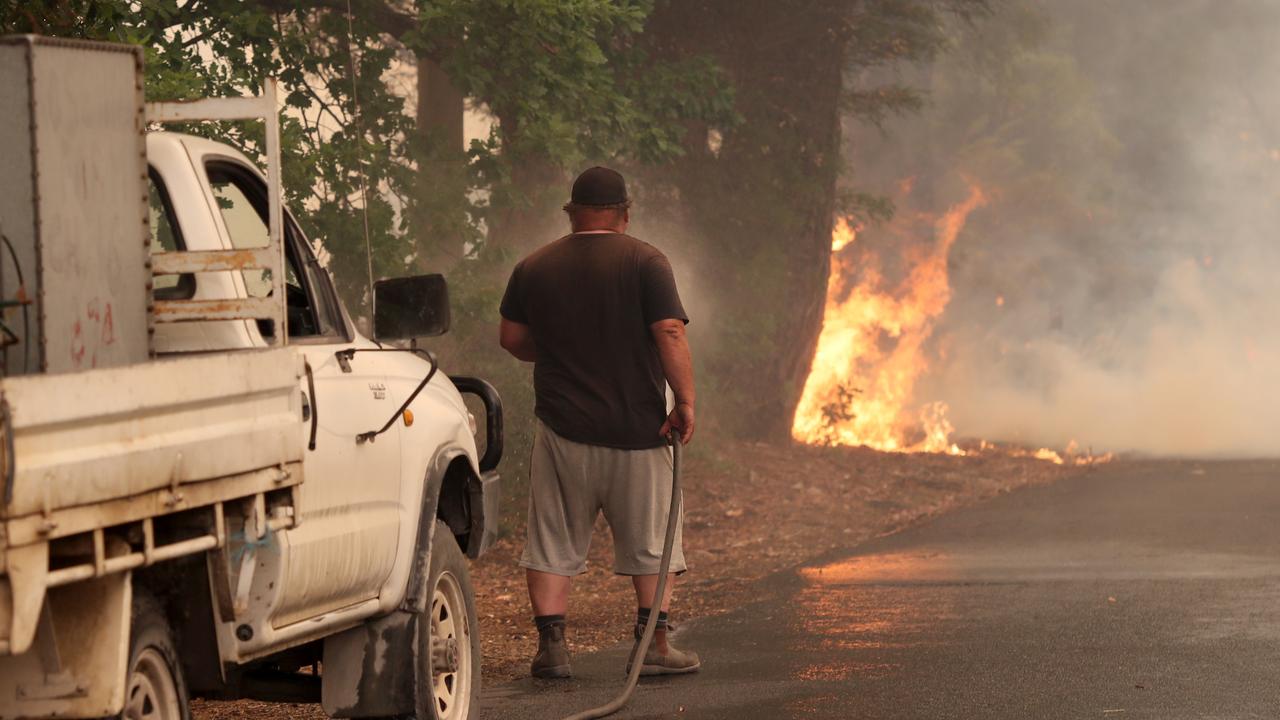‘We need to be safe’: SA coronavirus victims’ families issue heartfelt plea
The grieving families of four South Australians killed by coronavirus have come together to issue a heartfelt plea to the rest of the state.
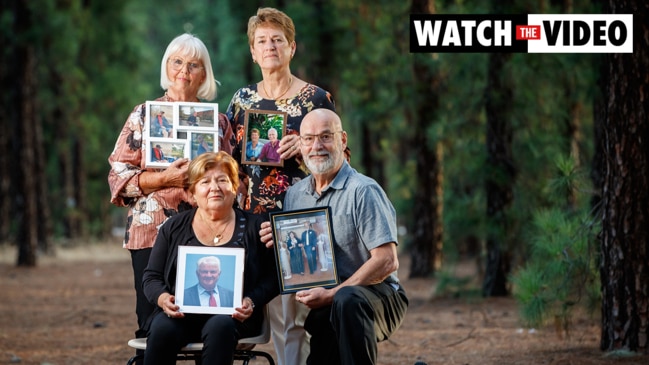
Coronavirus
Don't miss out on the headlines from Coronavirus. Followed categories will be added to My News.
A year after losing their loved ones to the pandemic, the grieving families of South Australia’s four COVID-19 victims have joined forces to back the vaccine rollout and beg people to follow the rules and avoid suffering their heartache.
Francesco Ferraro, 75, Linda Lavender, 62, Malcolm Todd, 76, and Roger Leaney, 74, lost their fights for life in the Royal Adelaide Hospital over six harrowing days in April last year.
The devoted grandparents, who each suffered catastrophic organ failures while in induced comas, died in isolation in the RAH’s intensive care unit. But ahead of next week’s 12-month anniversary of their deaths, their distraught spouses – all virus survivors – united in their plea for people to get a COVID vaccination.
They also want the public to heed health advice, use QR codes and get COVID tests to stop a potential third wave.
“I want people to realise we need to be vaccinated, we need to be safe,” said mother-of-two and grandmother-of-four Veronica Leaney, 73.
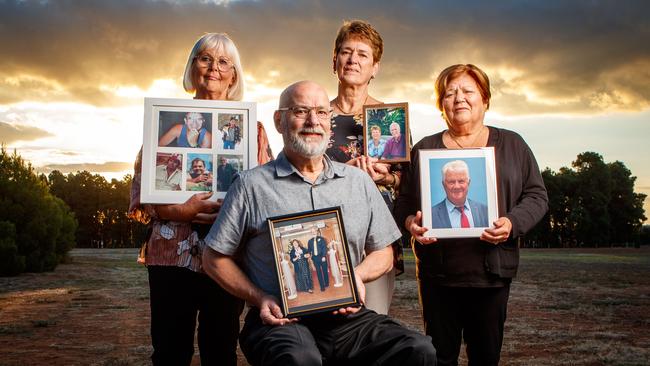
Meeting for the first time for today’s SA Weekend magazine, they laid bare their collective trauma in a series of exclusive interviews, hoping other families avoid their ongoing grief.
They also paid tribute to tireless ICU medicos who desperately tried to save their loved ones. Instead, they had to switch off life support machines and respirators.
Remarkably, no other SA patients have died. The state’s virus toll is at 658.
Mrs Leaney, of Valley View, in Adelaide’s north, lost her husband of 51 years on April 11 last year after the pair had returned from a New Zealand cruise aboard the stricken Ruby Princess cruise ship.
“If you love your families you need to be vaccinated because you can’t move on until we have some sort of immunity from this disease,” she said.
“And I plead to everyone (to) listen to the experts and to take that step to be vaccinated please. For the future, for your loved ones.”
She condemned “irresponsible” people who failed to use QR code check-in technology, maintain social distancing or stay home when sick.
“I really feel that the governments, federal and state, have shown great responsibility in looking after us as a nation, but we have a responsibility to do our part,” she said.
Speaking publicly for the first time, Elisabetta Ferraro, 78, of Campbelltown, said she supported vaccinations, arguing it was “better to get tested” than risk her grief-stricken life.
“I say they have to do it,” said Mrs Ferraro, whose husband of 49 years, Frank, was the state’s first person to die from COVID on April 6 last year.
“Even if they don’t feel sick, they have to get checked. Better to get checked. Because I lost my husband. I don’t want other people to have to have a loss of life. I think we should be careful.”
Stephen Lavender, 68, of Morphett Vale, said his wife of almost 38 years, Linda, failed to recognise COVID symptoms, including a cough, fever, and sore throat.
The merchandiser, 62, died on April 8 last year, days after also returning from the Ruby Princess cruise.
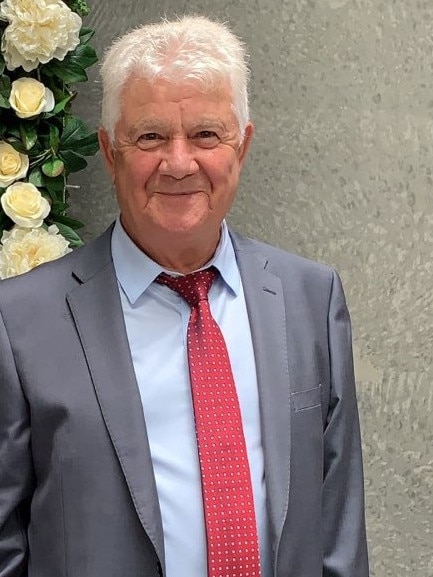
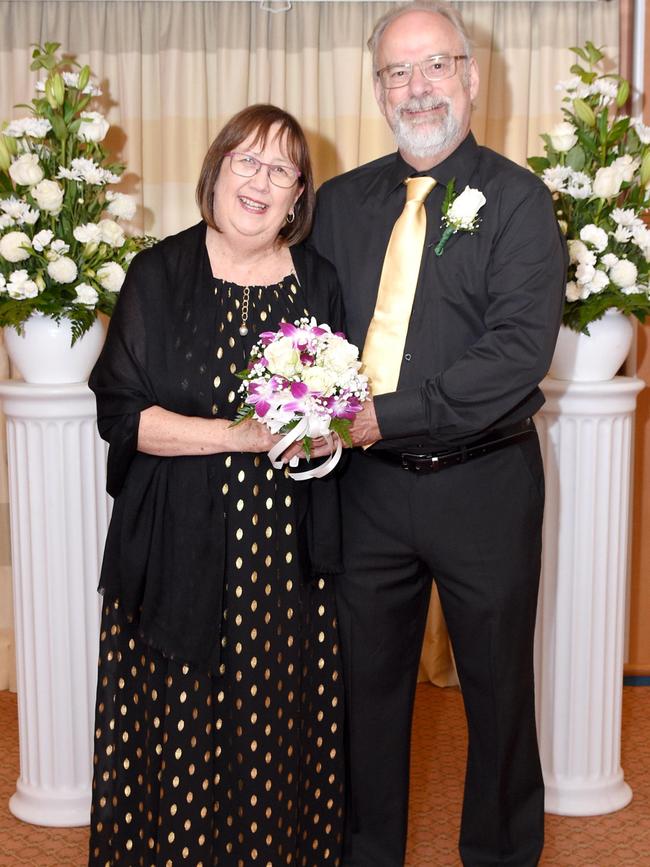
“This is serious, it is real, and people need to take it a lot more seriously than they are,” said Mr Lavender, a southern suburbs father-of-three and grandfather-of-four.
“Please, everyone, I hope no one else has to grieve like me or like the other (bereaved) people I (have) met today.”
He urged those feeling even the mildest symptoms to get tested.
“A lot of people complain about getting a swab up their nose,” he said.
“But you know what? You’re better off not liking a swab up your nose than not liking being on a ventilator in a hospital, because you know that’s the worst outcome.”
Riverland school bus driver Sandi Todd, 75, of Barmera, said “every single person who ‘opts out’ from having ‘the jab’, decreases the vaccine’s chances of fighting COVID”.
Her husband of 32 years, Mal, died hours after Ms Lavender on April 8 last year. He had returned from a family weekend in the Barossa Valley.
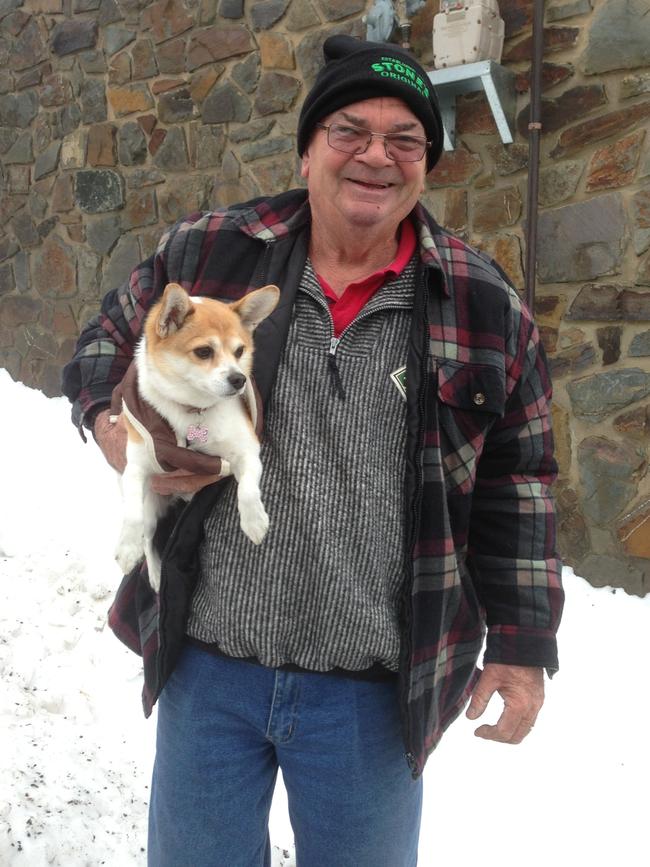
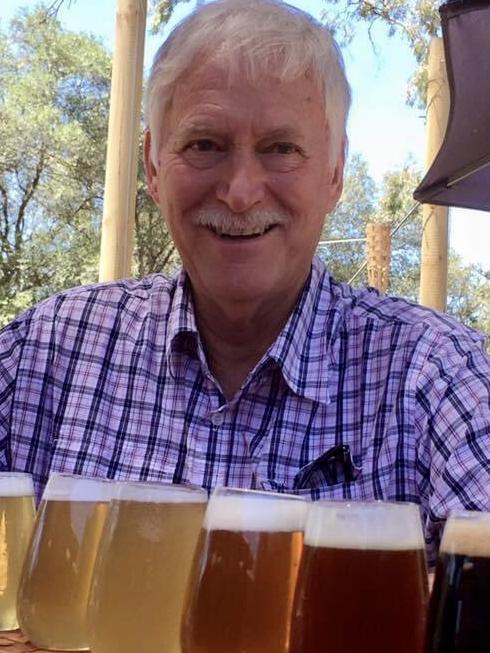
Mr Todd, whose 32nd wedding anniversary was four days before he died, was the first of two ICU patients.
His widow, a mother-of-three and a grandmother-of-six, is concerned about people who fail to get virus checks or refuse to use QR codes to help contact-tracing efforts.
“The enormity of the heartache, devastation and financial difficulties to families, friends and economies all around the world left by this virus is difficult to comprehend.
“I believe we all have a responsibility to fight this virus together and we must accept that responsibility for the sake of our families, our friends, our communities and the economy.
“You may think ‘I’m only one person, it won’t make a difference’. But it will. My plea is if you have decided to ‘opt out’, or if you are considering ‘opting out’, please reconsider.
“This is not a time for ‘not me’. Let’s make this a time for ‘me too’ and be a part of the success story.”
IN DEPTH: READ ABOUT THE FAMILIES’ EMOTIONAL GET-TOGETHER HERE
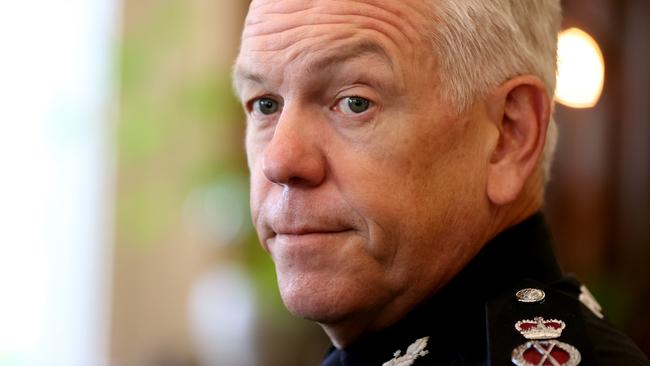
One year ago, virus deaths spurred action
The deaths of four South Australians from coronavirus was a “very sobering” experience that sparked urgent plans for a COVID-19 “onslaught”, the state’s police chief has revealed.
Police Commissioner Grant Stevens, who authorises legal directions as state co-ordinator, said authorities were forecasting a “dire” picture amid fears the pandemic would be uncontrollable.
“That first death followed by the other three was a very sobering time for us,” he said.
“(Our) forecasting was painting a picture that was much more dire than what turned out to the case in SA.
“But the four people who lost their lives, I think reminded us all of what we were doing and why we were doing it and created a sense of urgency around preparing South Australia for a COVID-19 onslaught.
“And I think we should all be very thankful that while it is a tragedy that four people lost their lives, we weren’t dealing with so many more people falling victim to the virus.”
Chief public health officer Professor Nicola Spurrier was personally devastated by the deaths. She said as restrictions ease and overseas travel resumes “there will again be an increased risk of COVID-19”.
“COVID-19 is a very serious disease and I will … never forget the week in 2020 that we lost four, dearly loved South Australians to (it),” she said.
“For the families and friends of these individuals, the heartache and impact will be forever enduring. For many of us, in terms of COVID, life has more or less returned to normal.
“The best way of preparing for this (risk) and preventing illness or death from this devastating disease for you or your loved ones is getting vaccinated.”
Health Minister Stephen Wade told parliament this week of his sadness at the “tragic anniversary”.
“Yet, through the good work of the people of South Australia and our public health team … we, thank God, are in the situation where we may well go a year without a single death to COVID,” he said.



